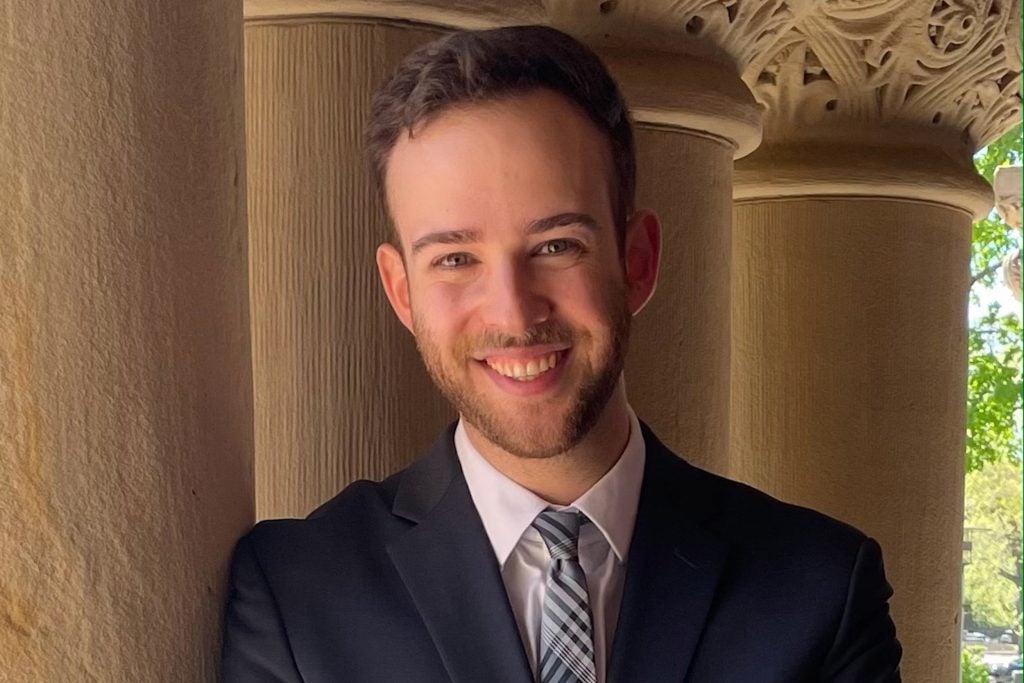The Harvard Gazette recently highlighted the work of Harvard students who have contributed their time and energy to giving back to the Greater Boston community. Below, recent Harvard Law graduate Daniel Polonsky, who was a student in the Safety Net Project at LSC, shares his experience as a clinical student. Read the full article here.
Daniel Polonsky
Harvard Law School’s Legal Services Center is staffed by Harvard Law clinical instructors and clinical faculty who team with law students to meet community needs, train the next generation of lawyers, and foster legal, economic, and social change. For example, the clinic I participated in works in part to help people get cash and other public benefits that they are rightly entitled to. I was in a project of the Veterans Law and Disability Benefits Clinic, the Safety Net Project.
I wanted to work in the clinic to get practical skills, and I figured that I would rather be developing those skills while helping people in need. The clients who come to this clinic are attempting to understand and navigate a sometimes incredibly complex system, all in an attempt to get their legal benefits — benefits including the basic human needs of food, income, and health care.
“It was really important to me to give back to this community that I’ve called home for the past three years,” said Daniel Polonsky
A recent client came to us through LSC’s partnership with the Boston Public Library. Every week since the beginning of the COVID-19 pandemic, staff from the Legal Services Center host virtual drop-in hours in collaboration with the Boston Public Library to provide advice and referral information to people about legal issues ranging from housing law, disability rights, Social Security and public benefits, such as SNAP and unemployment assistance, veterans benefits and military record corrections, family law, tax issues, predatory student loan, consumer loan, and Small Claims Court problems, to criminal record-sealing or expungement. This client was someone who is disabled — is unable to work — and was rightfully entitled to benefits. Yet she was denied Social Security benefits not once, but twice, and had been without regular income for over two years.

Based on the evidence and the brief, the administrative law judge rightly found that she is disabled without her having to go through the scheduled video-conferenced administrative hearing. Fortunately, at long last, she was able to get the benefits that she deserved and desperately needed. This win was rooted in understanding the law and how to reference the regulations and explain why she so clearly met the standards. Additionally, she was applying for SSI, or Supplemental Security Income, which is specifically intended for people without resources. She would not have been able to afford to hire a lawyer and, given that over 70 percent of unrepresented applicants are denied, she may not have won her case without our help. Having access to Harvard-supported programs like the clinical programs is critical for so many people.
And the program is beneficial for law students. There are some practical skills you are not going to get in a traditional Law School class. And so, if students want to develop those skills before they graduate, as opposed to during their first job, I don’t see any reason not to do so while helping people and contributing to closing the unmet need for legal assistance. I would so much rather be working with and helping someone from a marginalized community or someone who can’t afford legal services than working on mock cases. So really, it’s a win-win. Everyone benefits. It was really important to me to give back to this community that I’ve called home for the past three years. I’m incredibly proud of this work — and proud to be part of a program that means so much to so many.
